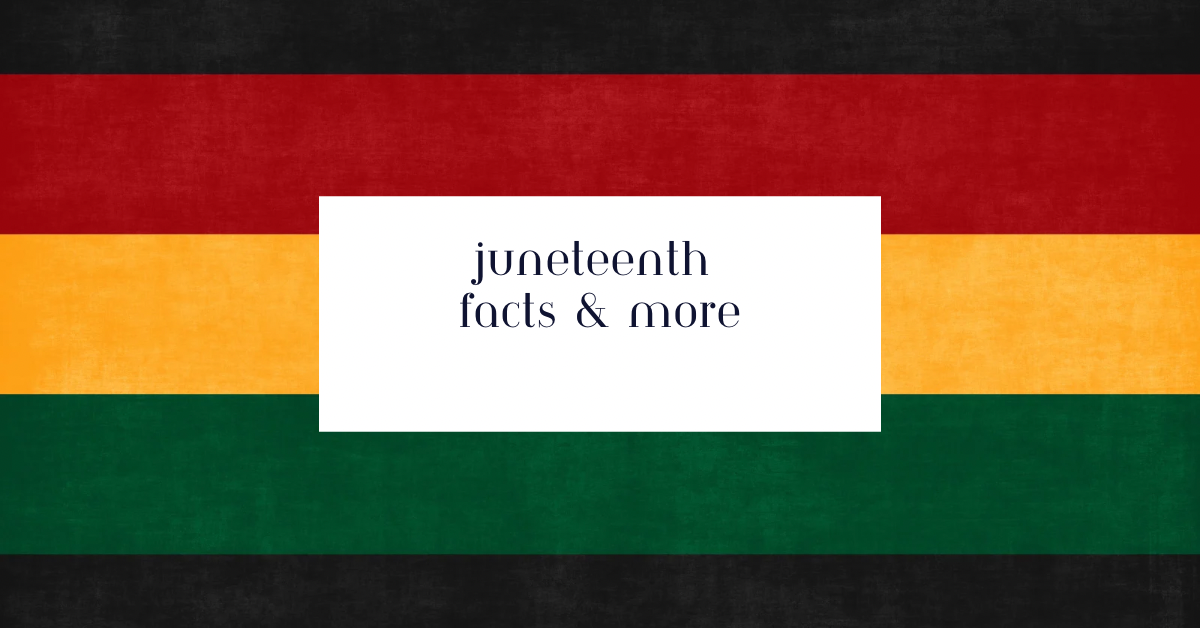Discover the fascinating history of Juneteenth, the longest-running nationally observed event marking the abolition of slavery in the United States. Gain insights into this annual celebration held on June 19th by exploring the following ten noteworthy facts.

What is Juneteenth?
Juneteenth, also known as Freedom Day or Emancipation Day, is a significant holiday commemorating the end of slavery in the United States. It is celebrated on June 19th each year. The term “Juneteenth” is a combination of “June” and “nineteenth,” referring to the date when enslaved African Americans in Texas were officially informed of their emancipation.
Facts
- Despite the Emancipation Proclamation being issued on January 1, 1863, the path to freedom for all enslaved people was not immediate.
- The Emancipation Proclamation, while liberating slaves in states that were in rebellion against the United States, relied on the presence of Union troops to enforce its provisions. However, this enforcement did not extend to the border states.
- In the summer of 1865, the Civil War came to an end. On June 19th of that year, Union General Gordon Granger and his troops arrived in Galveston, Texas. It was on this day that General Orders No. 3 were announced, marking the significance of June 19th as Juneteenth, a day to be celebrated and remembered.
- General Orders No. 3, which was issued on that momentous day, declared the following: “The people of Texas are informed that, in accordance with a proclamation from the Executive of the United States, all slaves are free. This involves an absolute equality of personal rights and rights of property between former masters and slaves, and the connection heretofore existing between them becomes that between employer and hired labor.” This announcement marked a profound shift in the social and legal landscape, establishing newfound freedom and equal rights for formerly enslaved individuals in Texas.
- Within General Order No. 3, there was an encouragement for the newly emancipated individuals to consider staying with their former owners.
- “The freedmen are advised to peacefully stay in their current residences and engage in wage labor. They are informed that congregating at military posts will not be permitted, and they will not receive support for being idle, whether at the posts or elsewhere.”
- The period following Juneteenth is commonly referred to as the ‘Scatter.’
- Despite the advice to stay put, numerous former slaves chose to disregard the recommendation and departed the region during the initial proclamation. In the ensuing weeks, a significant exodus of formerly enslaved individuals took place, as they left Texas in large numbers to search for family members and forge their own paths in the post-Civil War United States.
- Juneteenth has been celebrated under many names.
- In addition to being known as Juneteenth, the commemoration of the end of slavery in the United States has been referred to by various names such as Freedom Day, Jubilee Day, Cel-Liberation Day, Second Independence Day, and Emancipation Day, among others. These alternative names reflect the significance and diverse interpretations of this historic event in different communities and regions.
- Emancipation Park in Houston, Texas holds special significance as it was purchased with the explicit intention of celebrating Juneteenth
- The park was acquired for the purpose of commemorating the emancipation of enslaved African Americans and providing a dedicated space for Juneteenth festivities. It stands as a symbol of remembrance, community, and the continued pursuit of freedom and equality.
- Juneteenth celebrations experienced a decline during the early 20th century.
- The celebration of Juneteenth was dampened during the early 20th century due to the enactment of Jim Crow laws, which enforced racial segregation and discrimination. These laws imposed systemic barriers and undermined the spirit of freedom associated with Juneteenth.
- The celebration of Juneteenth experienced a revival during the civil rights movement. As the fight for racial equality gained momentum and African Americans asserted their rights, Juneteenth took on renewed significance as a symbol of freedom, resilience, and the ongoing struggle for civil rights.
- The Poor People’s March, organized by Martin Luther King Jr., intentionally coincided with Juneteenth as a strategic decision. By aligning the march with this important date, the participants aimed to highlight the historical significance of Juneteenth and use it as a platform to advocate for economic and social justice.
- Indeed, celebrations of Juneteenth persist to this day. Juneteenth has evolved into a prominent holiday that is observed and commemorated across the United States.
- Juneteenth traditions encompass a diverse range of activities that reflect the cultural heritage and significance of the holiday.
- On June 17, 2021, President Biden signed the Juneteenth National Independence Day Act, which officially made Juneteenth a federal holiday.
- Juneteenth holds the distinction of being the first holiday to be approved as a federal holiday since President Ronald Reagan signed the bill in 1983 that established Martin Luther King Jr. Day as a federal holiday. The designation of Juneteenth as a federal holiday in 2021 marks an important milestone in recognizing and honoring the historical significance of the end of slavery in the United States. It demonstrates the continued efforts to acknowledge and commemorate pivotal moments in American history and the ongoing struggle for equality and justice.
You can read more of my holiday posts here!
Love, Bee xx
